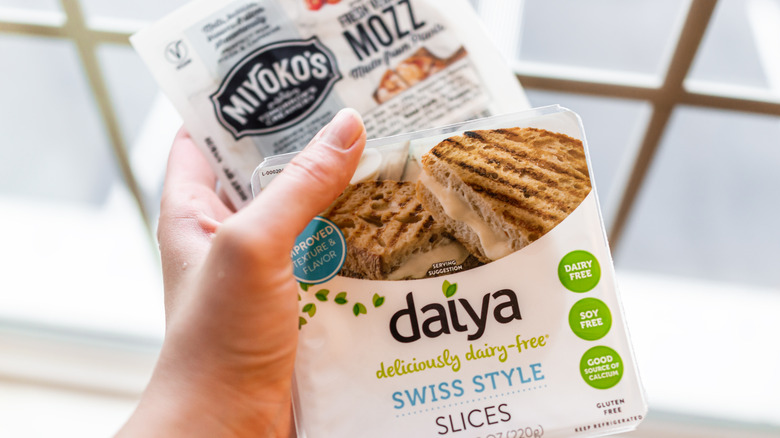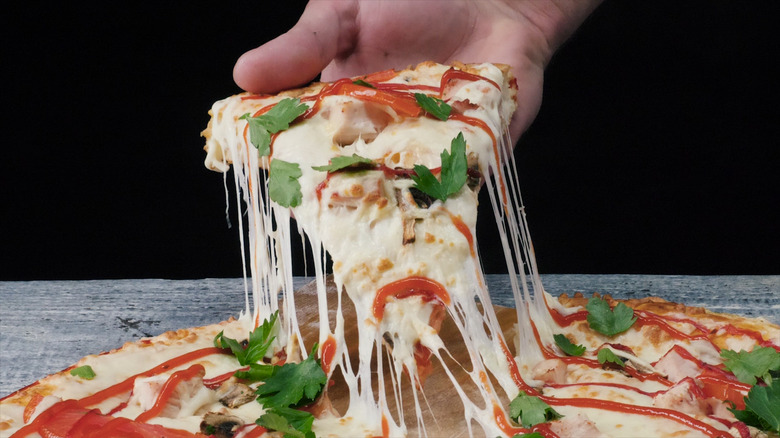The Real Reason Vegan Cheese Doesn't Melt
O cheese, how we love thee. From peppery Jack to oozy Brie to sharp cheddar, we can't seem to get enough of cheese, whether it comes grated over the top of a pasta or sandwiched between good bread and cold cuts.
For the vegans among us, however, cheese can be a prickly subject. Obviously, those abstaining from animal products can't indulge in these dairy-based delights; however, as pretty much everyone on Earth still wants to be able to go to town on cheese, seemingly thousands of vegan-friendly "cheese" substitutes have sprung up over the past few decades (via Intrado Globe Newswire). From "cheddar" slices from Parmela Creamery to cashew milk "mozzarella" from Miyoko's (via Food52), vegans these days have a wide variety of options to choose from.
But here's the rub: Since the advent of commercial non-dairy cheese in the 1980s, vegans have been complaining about one of its characteristics: its lack of ability to melt and ooze like real cheese. What explains this drawback to vegan cheese? Read on to find out.
Chalk it up to a lack of casein
As most of us know, real cheese is made from dairy. Whether you're biting into a goat, cow, or sheep's milk cheese, this food is just fermented milk (via SF Gate). As such, it retains milk's chemical composition, including lactose, or the natural sugar found in milk, as well as casein, a type of protein found in milk (via The Takeout). As explained by a WIRED video posted on YouTube, this protein is what enables cheese to melt — which is why vegan cheese, which obviously doesn't contain any casein, tends to not be able to melt very well. Instead, it tends to break down a little bit, but without the stretchy ooze that makes dairy-based cheeses so appealing on pizzas, sandwiches, and more (via The Takeout).
As explained by WIRED, casein, which is found in the milk of all animals but nowhere else, is responsible for real cheese's meltiness. As such, most vegan iterations just can't capture the magic that casein lends to cheese. "Mimicking casein or replacing casein with a plant-based protein is extremely, extremely challenging, or nearly impossible," Dr. Inja Radman, a cheese researcher, told WIRED in the video.
Still, as noted by The Takeout, developers of vegan cheese aren't giving up on meltiness quite yet. In Belgium, Those Vegan Cowboys are using a fungal strain that mimics casein. And California-based New Culture is working on a melty "mozzarella" that utilizes microbe-grown casein that doesn't come from animals. We'd sure love to try a vegan pizza that approximates the real deal.

